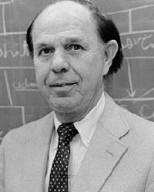Gordon L. Brownell, professor emeritus in the Department of Nuclear Engineering, has been elected to the Institute of Medicine.
Current members elect new members from candidates selected for their major contributions to health and medicine or related fields such as social and behavioral sciences, law, administration and economics. The Institute's charter requires that at least one-fourth of the members be drawn from other than the health professions.
The Institute of Medicine (IOM) is one of the four national academies. The others are the National Academy of Sciences, the National Academy of Engineering and the National Research Council.
Brownell, an honorary physicist in the radiology department at Massachusetts General Hospital, has been honored in the past for his role in developing positron imaging and positron emission tomography.
The IOM's committees engage in a broad range of studies related to health policy issues. Current projects include a study of health care in the 21st century, a review of microbial threats to health, an assessment of human subjects in research studies, long-term medical and social results of cancer treatment and survival, and six reports on Americans who lack health insurance and the consequences for them and society.






